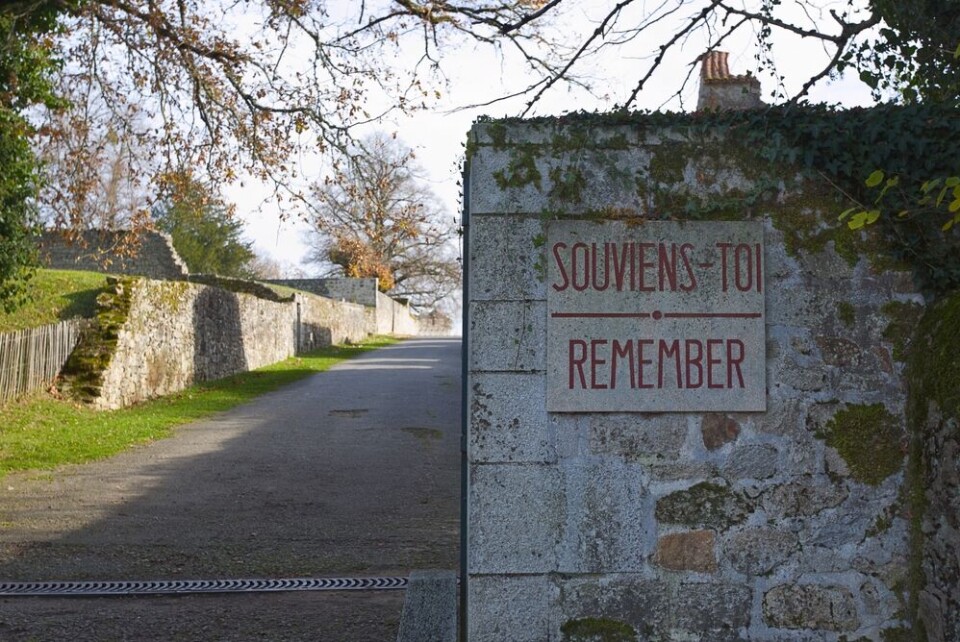-
Old France is still here – if you know where to look
A reader responds to columnist Nick Inman's article on the changes in France
-
Why Jordan Bardella is frontrunner for France’s 2027 presidency
Columnist Simon Heffer looks at the inexorable rise of the Rassemblement National's likely candidate
-
No crisps, no party games: the unwritten rules of French children’s birthdays
Columnist Samantha David describes the ups and downs of a French birthday party for children
France's wartime tragedy still resonates
Dr Tim Blakemore, a former senior law lecturer at the University of Northampton who now lives in France, examines why the country places such emphasis on remembering the First and Second World Wars

May 8 is the anniversary of the end of World War II in Europe and, while it is difficult to object to commemorations for the end of the hostilities and the horrors of the conflict, does France overdo its memorials?
All over France, solemn ceremonies will take place, but the emphasis of these memorials is suggested by the title of the annual public holiday: Victoire 1945.
There are rarely such events in Britain, let alone any mention of “victory” as the theme, despite the date being known as VE (Victory in Europe) Day. There were tributes in 1995 and 2015, to mark the 50th and 70th anniversaries respectively, but in France May 8 is a national holiday.
This has not been without controversy since it was added to the calendar in 1953. In 1975 it was cancelled as an official day of commemoration but pressure from veterans’ associations in particular led to its restoration in 1981.
I must register my personal standpoint for these reflections. My home town of Coventry was a target for mass bombing and my parents were living there at the time of the Coventry Blitz.
I now live in Limousin, which suffered firstly under the Vichy regime, and then saw several appalling atrocities perpetrated by retreating Nazi forces.
One of those was the massacre at Oradour-sur-Glane near Limoges.
What is not so well known is that the same German division had stopped in Tulle the day before, where soldiers rounded up the male population and hanged them, one after another, from lamp-posts and balconies throughout the town. A total of 99 were murdered in this fashion before the Nazis ran out of rope.
The German division then moved north. Oradour-sur-Glane was their next stop.
The massacre in Tulle is commemorated and the ruined village of Oradour-sur-Glane has been left untouched as its own memorial. But there are many other reminders of these and other events.
Tulle has its own annual commemoration but also has several different permanent memorials, and publishes a booklet explaining where they all are, with maps and photographs.
Almost every village has a plaque somewhere, remembering someone who had been killed at that spot, as well as other memorials for individuals who were deported and never returned.
Older memorials refer to the perpetrators as “Germans” whereas those which are more recent tend to use the term “Nazi”, in line with a wish for reconciliation between France and Germany.
I have been struck by the contrast with my home town.
There are no individual memorials to people who died in the bombing raids on Coventry, although 70 years later my mother could point to a site where a house had been flattened and its occupants killed – and Coventry Cathedral has been preserved in its ruined state, but tidied up considerably and with an ostentatious purpose of reconciliation.
The explanation for these differences is simple. The ordinary people in the two countries had a very different experience of the war.
Obviously, both suffered the loss of loved ones in the fighting, and deprivation from rationing of necessities.
But the direct suffering of the British population was caused by bombing, whereas in France it arose from occupation by a tyrannical power.
While we must be conscious of the tendency to be amateur psychologists, the effect of occupation, both at the time and in the folk memory of the people, is clearly different to that of being bombed.
It is one thing to have explosives dropped on you, especially when there is a carefully fostered tradition of stoic endurance and the “Blitz spirit”. There is also perhaps an underlying sense of revenge and retribution from the subsequent bombing of German cities which makes space for reconciliation and forgiveness.
Occupation is a more personal and humiliating experience for the country concerned. It is no coincidence that many memorials in France are to the Resistance, promoting a notion of the opposition of the population as a counter to the ignominy of subservience to a foreign power.
There was no corresponding occupation of Germany and the French army was not in a position to exact retribution on behalf of the French people, so the role of the Resistance in defeating the invaders is the main source for national pride.
The French can therefore be excused for making more of the end of the war than Britain and for putting up so many personalised memorials, but perhaps the time has come to take a new approach to the terrible anniversary.
























